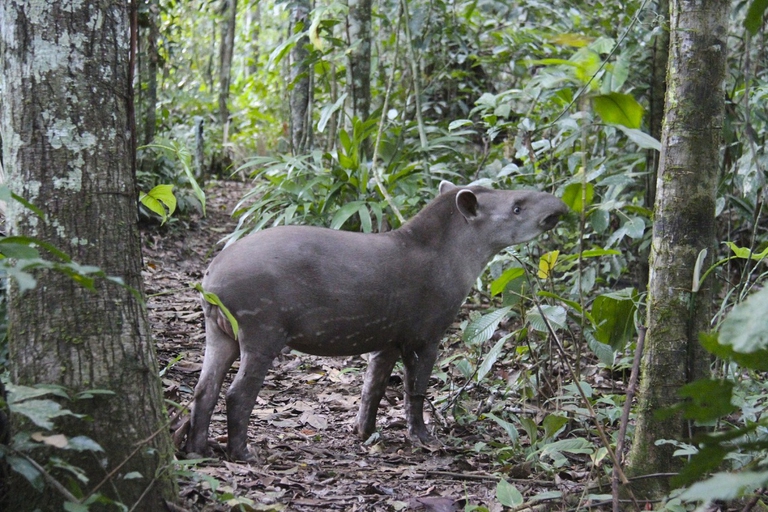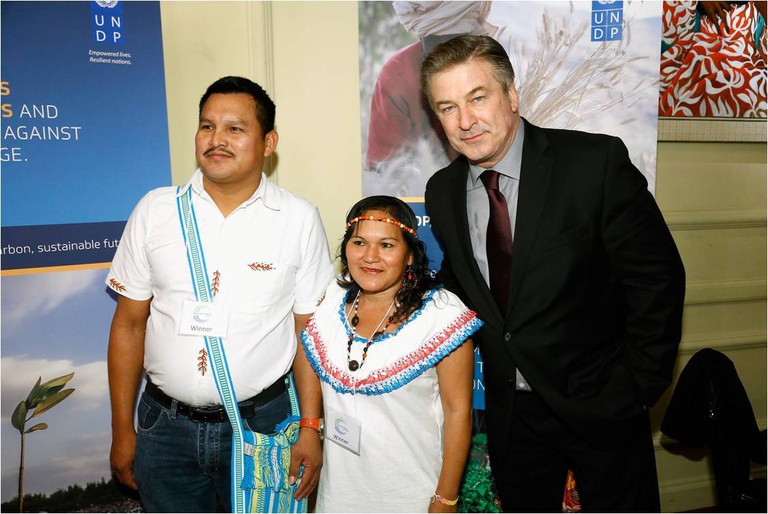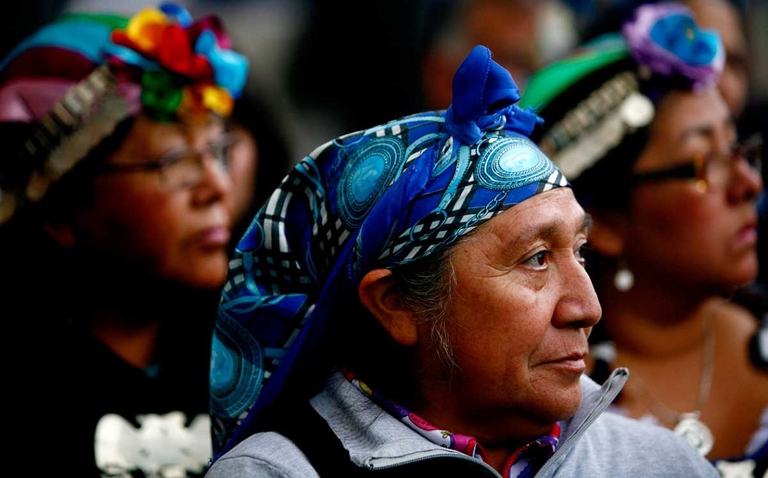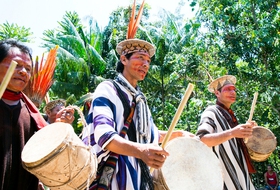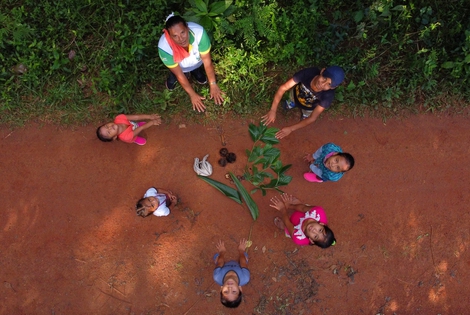
The Amazon became an alternative classroom during the pandemic. Now, the educational forest in Batraja, Bolivia, lives on to teach children and adults the value of nature.
La comunità di indigeni Tacana ha sviluppato con successo una strategia di gestione sostenibile del territorio, che gli è valsa il premio Equator Prize alla Cop 21 di Parigi.
The Madidi National Park, Bolivia, is considered to be home to the planet’s greatest biodiversity. In the huge variety of ecosystems, which extend for 19,000 square kilometres, over 200 mammal species, 12,000 plants and 11% of the world’s bird species find shelter.
The park is also home to the Tacana indigenous community, which populates the forest from time immemorial and was one of the few Bolivian tribes to resist to the conversion to Christianity. The Tacana people have been awarded the prestigious Equator Prize, international award that honours the initiatives aimed to reduce poverty, protect the environment, and curb the effects of climate change.
The Bolivian community has been honoured for elaborating a series of sustainable land management strategies that allowed extraordinarily reducing deforestation, which is four times lower compared to the areas outside of their territories. For instance, the Tacana people have decided to reduce the use of agroforestry resources in order not to threaten their survival, invest in ecotourism and craftsmanship, and launch periodical monitoring to verify that sustainability criteria are met.
The award ceremony has been held at COP21 in Paris, and the representatives of the Tacana community have been awarded the Alec Baldwin prize, in honour of the great environmentalist. The Equator Prize, promoted by the association Equator Initiative, is not that easy to be obtained. This year, it honoured only 21 projects out of a total of 1,461 applications from 126 countries.
The 2015 theme was the prevention of deforestation, considered a key point in curbing global warming. The Tacana people, divided in some 20 communities in north-western Bolivia, have obtained legal rights to over 389,000 hectares of their traditional lands, thanks to years of efforts and battles. Their main aim is to develop sustainable livelihoods and protect biodiversity and forests.
A research carried out by the Wildlife Conservation Society (WCS) has revealed the significant decrease in deforestation in Tacana-managed areas, confirming the idea that local communities are more prone to manage land in a more sustainable way compared to privates and governments, as long as they have legal rights to protect it.
This is a rare phenomenon though. Indeed, according to a study, indigenous communities lack legal legal rights to 75% of the lands they rely on.
Siamo anche su WhatsApp. Segui il canale ufficiale LifeGate per restare aggiornata, aggiornato sulle ultime notizie e sulle nostre attività.
![]()
Quest'opera è distribuita con Licenza Creative Commons Attribuzione - Non commerciale - Non opere derivate 4.0 Internazionale.
The Amazon became an alternative classroom during the pandemic. Now, the educational forest in Batraja, Bolivia, lives on to teach children and adults the value of nature.
Our species took its first steps in a world covered in trees. Today, forests offer us sustenance, shelter, and clean the air that we breathe.
100,000 mink will be culled in Spain after testing positive for coronavirus. Meanwhile, the Netherlands abandons mink farming completely.
The dog meat festival in Yulin – where ten thousand cats and dogs are butchered – is taking place this year, notwithstanding the coronavirus pandemic.
Bangladesh suffered widespread damage as a result of Cyclone Amphan. Yet the Sundarbans mangrove forest acted as a natural barrier protecting the country from further destruction, as it has done countless times before.
On top of a 2.4 million dollar compensation, the indigenous Ashaninka people will receive an official apology from the companies who deforested their lands in the 1980s.
The tapir was reintroduced into Brazil’s Atlantic Forest, the country’s most at-risk ecosystem. The species can play a key role in the forest’s recovery.
Forests are home to 80 per cent of the world’s terrestrial biodiversity. This year’s International Day of Forests highlights the urgent changes needed to save them.
Joaquin Phoenix, who won Best Actor at the 2020 Oscars, reminded us that we need to overcome our egocentric view of the world, and rather choose love and compassion towards others and the natural world.
